Low-income seniors ‘essentially trapped’ in Chinatown building as owner is charged for inoperable elevators
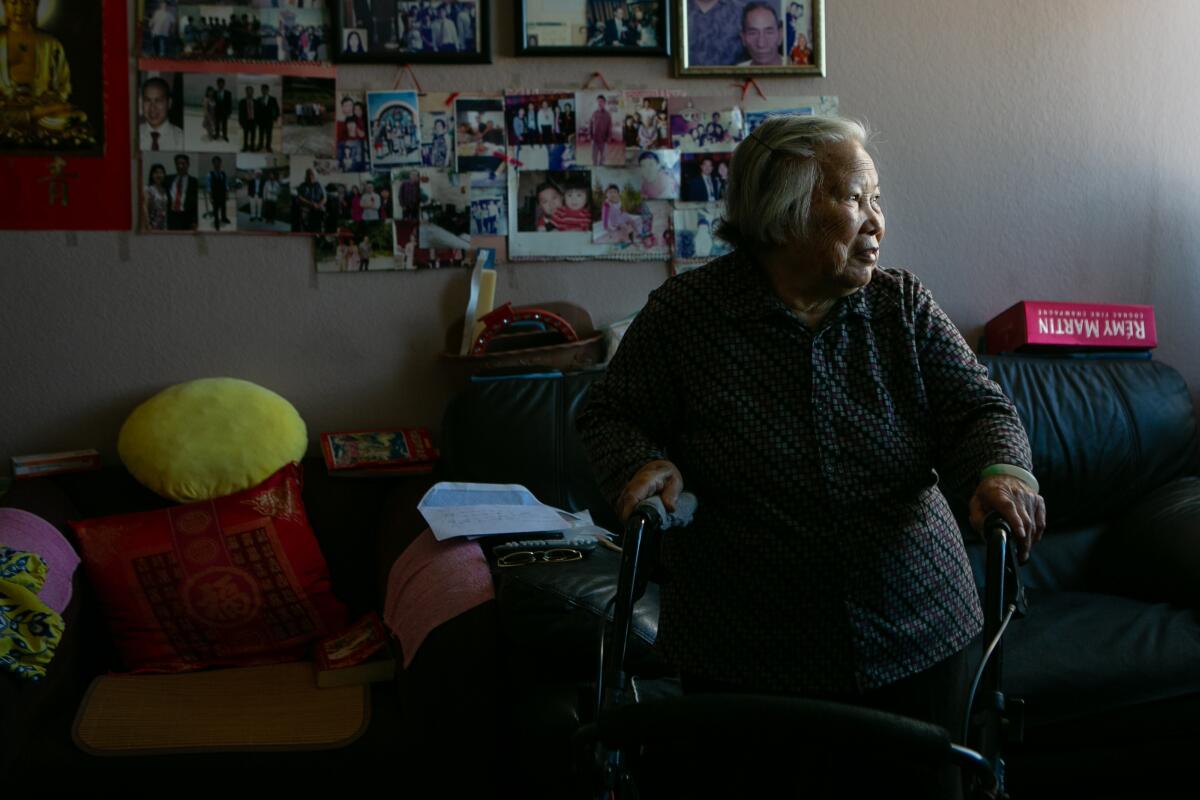
- Share via
Yuk Wun Pong hasn’t left her apartment in 22 days.
The elevators in Cathay Manor, a low-income senior housing complex in Chinatown, haven’t worked in weeks.
Pong, 86, who lives on the ninth floor, uses a walker, so she can’t climb the stairs. Her son-in-law brings groceries.
On Thursday, Los Angeles City Atty. Mike Feuer announced that his office has filed 16 misdemeanor charges against the building’s owners.
“It is outrageous that vulnerable senior citizens in a 16-story high-rise are essentially trapped in their units,” Feuer said.
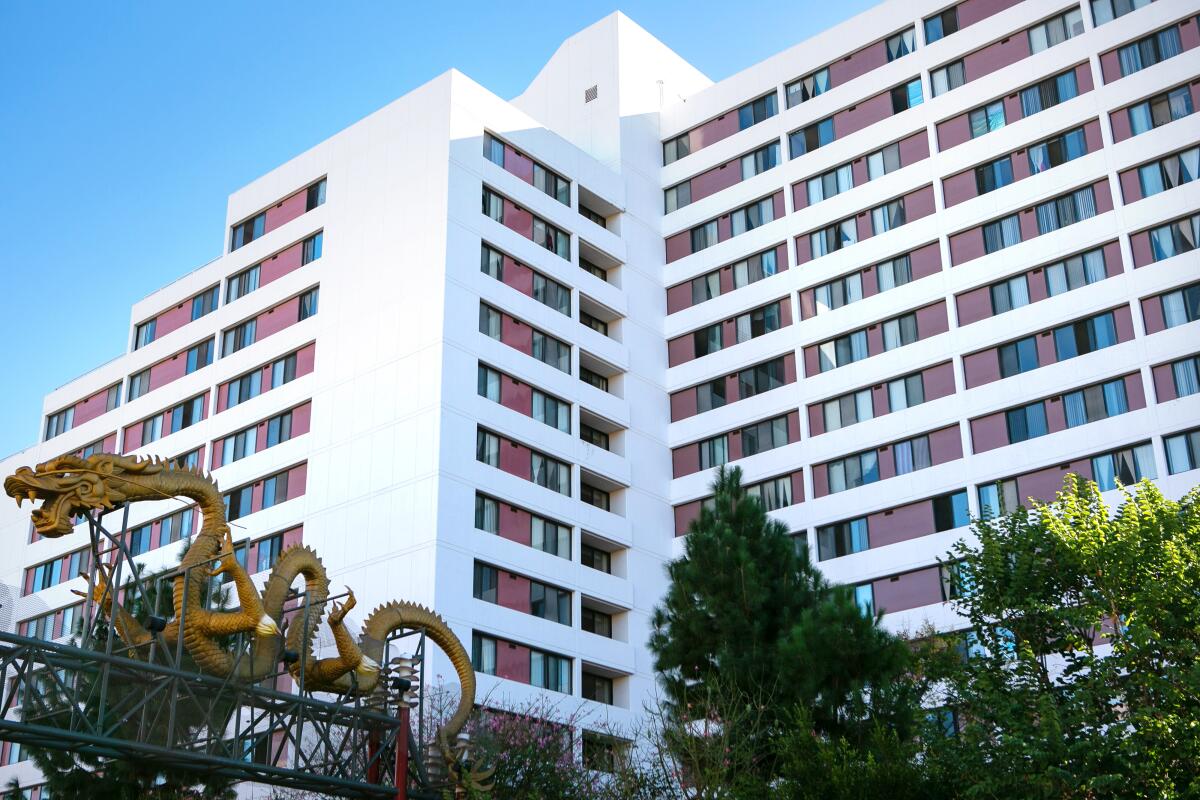
Without working elevators, elderly residents in the building may not be able to get groceries or visit the doctor, he said.
The charges against the owners, Gong Donald Toy and C.C.O.A. Housing Corporation, in the criminal complaint filed Wednesday include failing to maintain working elevators, failing to keep the building in good repair and failing to comply with fire safety protocols.
On Sept. 1, an official from the Department of Building and Safety visited Cathay Manor in response to an anonymous complaint about the elevators, Feuer said.
One elevator was repaired prior to an inspection a week later. By Oct. 15, it was again out of service.
As of Thursday, both of the building’s elevators were still out of commission, said Feuer, who is running for mayor.
Toy, who is chief executive of C.C.O.A. Housing Corporation, said Thursday that he was not aware of the criminal charges but that he knew of the residents’ concerns.
He said he was waiting on parts required to fix the elevators.
The goal of “my board and myself and our organization is to provide affordable housing for seniors,” Toy said. “Basically, we’ve done that for 35 years and really had no major incidents. It’s unfortunate that these incidents have happened, and we’ve been trying to address it.”
But the elevators have been unreliable almost since Cathay Manor opened in 1984 as the first federally subsidized senior housing project in Chinatown.
In 1988, about 200 residents protested maintenance lapses, including elevator problems, in the building.
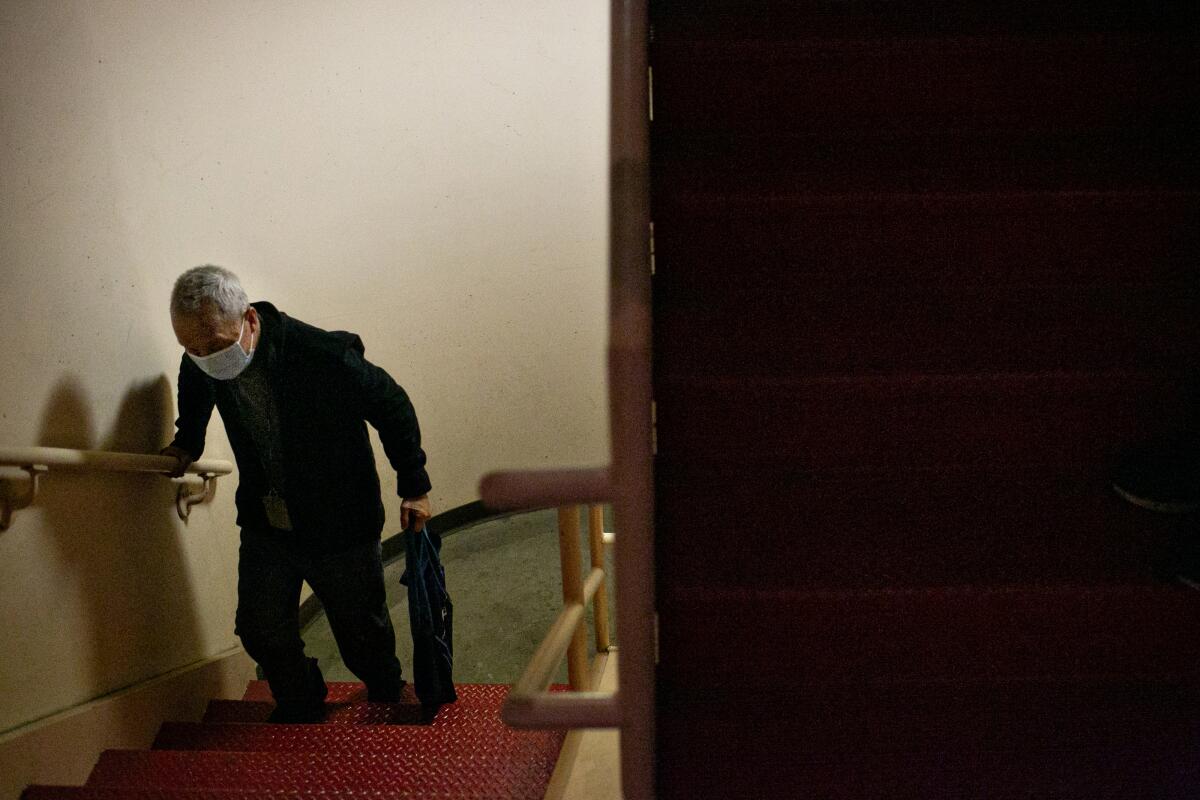
Records with the Los Angeles Housing Department’s code enforcement division show more than 30 complaints about the building this year, including for unmaintained electrical services; unsafe and unsanitary premises; defective drywalling and peeling paint; dampness in rooms; missing fire extinguishers; lack of illumination in hallways and stairways; and an inability to reach managers.
In August, some tenants staged a protest, describing the offline elevators and broken laundry facilities. Several said they had resorted to washing clothes and linens in the sink and hanging them up to dry.
Toy said workers won’t come to fix the laundry machines because they don’t want to climb the stairs.
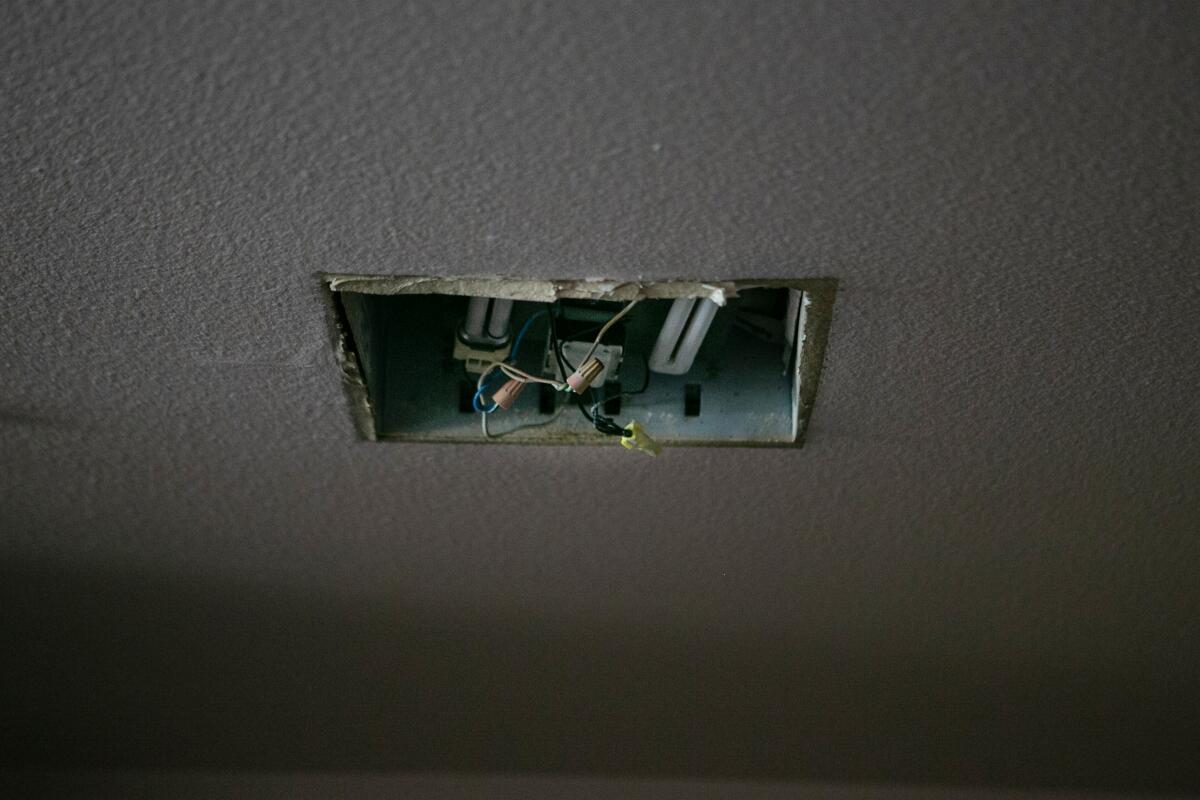
The elevators have been red-tagged for emergency repair for months, said Chester Chong, chairman of the Chinese Chamber of Commerce, who has been assisting the tenants.
“The management don’t treat the resident as a human being,” he said. “They don’t care. They only ask, ‘Where is the money?’”
More than 300 residents live in the building’s 278 units, according to Chong.
Many speak Cantonese, Vietnamese or Spanish and have limited English.
Even problems that seem easy to fix are more complicated than they seem, Toy said. The dark stairwells require new electrical parts, not just lightbulbs, he said.
“We stand ready, and we want to resolve to make the solutions good for everybody,” he said. “We have no reason to not want to repair or to not want to do certain things.”
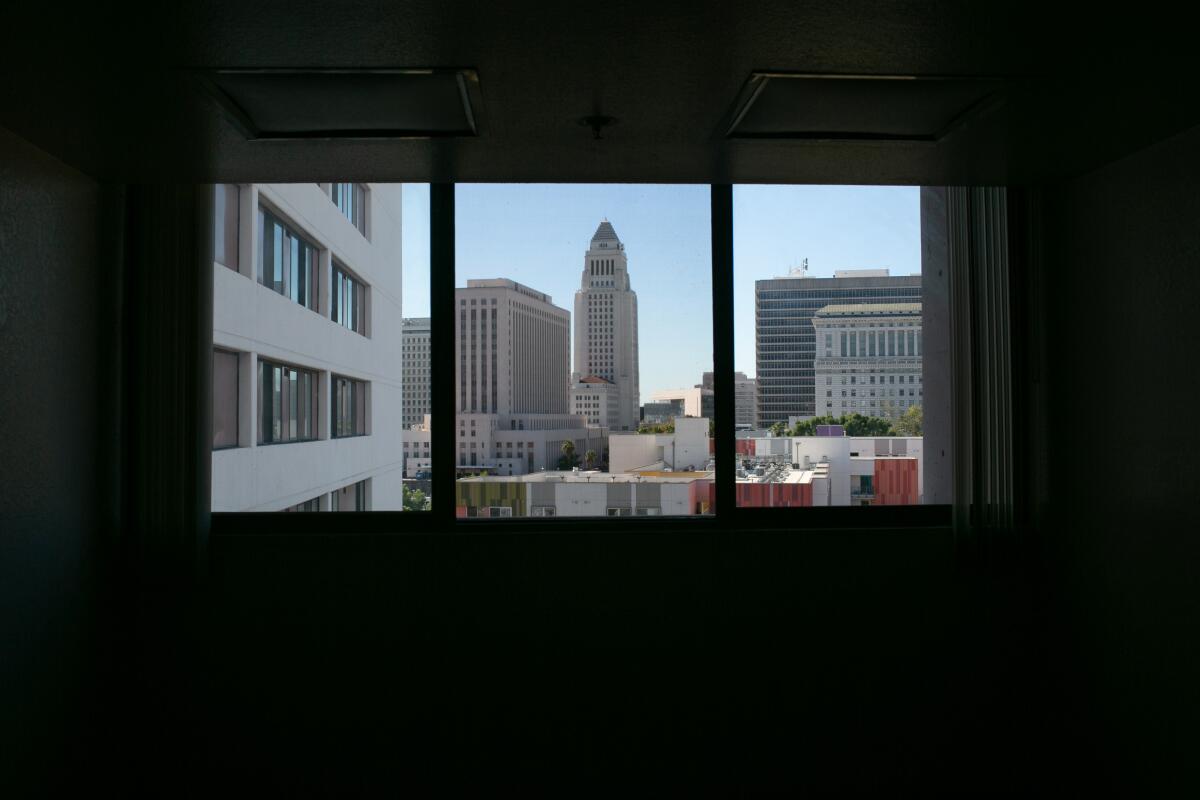
Los Angeles City Councilman Gil Cedillo, whose district includes Chinatown, said in a statement that global supply chain issues caused by the COVID-19 pandemic are making it hard to obtain the necessary parts.
But his “paramount concern is for the safety and access of the seniors and tenants in Cathay Manor,” he said.
Cedillo said the city hopes to get a manual operator for one elevator within 48 hours and to modernize the other one.
Thuy-Linh Nguyen, who is in her 50s, recently lugged eight bottles of water up the stairs for an 80-year-old friend.
“I feel so sorry for all of these seniors because their concerns are not respected, never listened to,” Nguyen said.
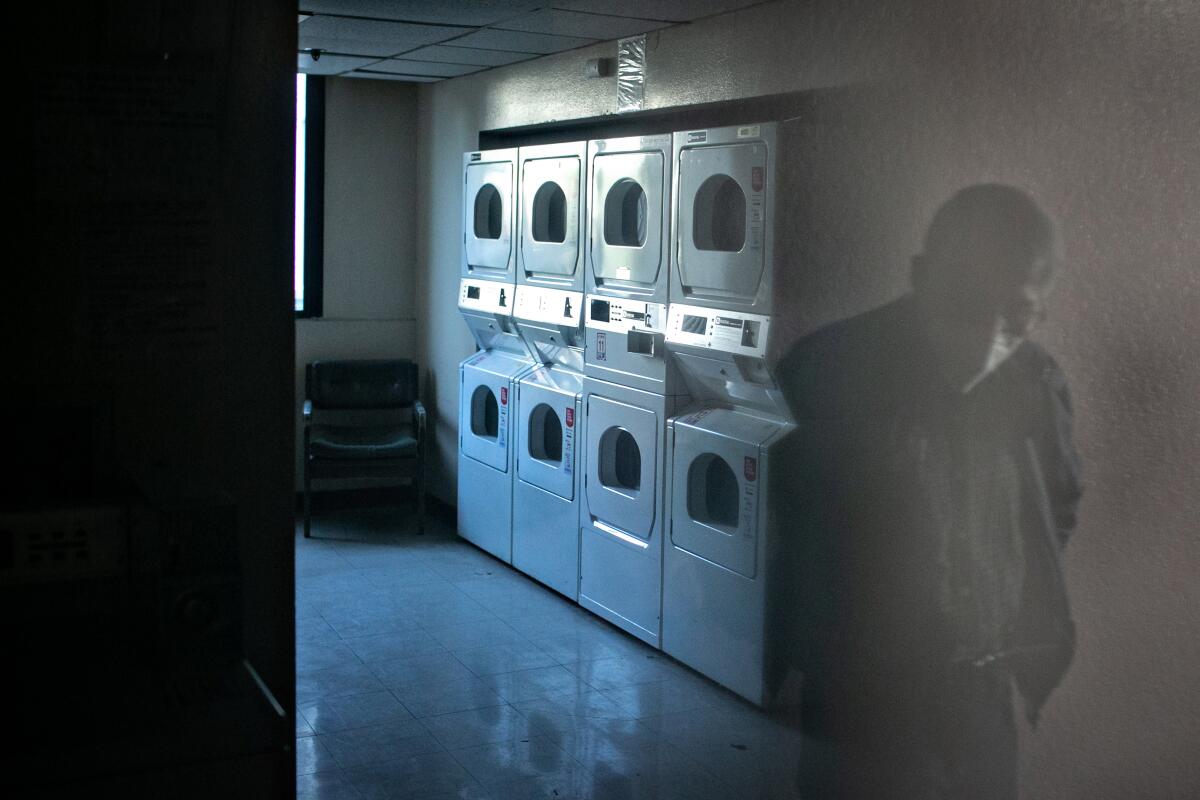
“My laundry smells because I can’t wash or dry every single thing properly,” said the friend, Tuyet Nguyen, an immigrant from Vietnam. “We’re stranded without outside air. We just need a bit of exercise, and we force ourselves to find a way to get out, though we are experiencing pain.”
The lack of working elevators is a serious safety issue, Feuer said, since a fire could be catastrophic.
The Los Angeles Fire Department has placed the building under a fire watch, which keeps it under continuous surveillance to detect signs of fire.
Ideally, the owners will fix the elevators, but various city departments are also making plans to assist the residents, Feuer said.
Each of the 16 criminal charges is punishable by a fine of up to $1,000, up to six months in jail, or both.
Wing Ng has called the building home for more than 11 years. He recently underwent an operation for kidney cancer and struggles to walk up the six flights of stairs to his apartment.
“It’s really, really hard, but I consider myself lucky because I can still walk,” said Ng, 81, alluding to neighbors who are in wheelchairs and trapped “because they can’t go anywhere.”
Pong, the ninth-floor resident, is a widow who lives alone.
The retired seamstress can’t move in with her children because they don’t have extra space.
She pays $231 a month for the subsidized apartment, passing the time watching Cantonese television.
“I cannot go anywhere,” she said. “Living here, it’s like a jail.”
More to Read
Sign up for Essential California
The most important California stories and recommendations in your inbox every morning.
You may occasionally receive promotional content from the Los Angeles Times.











